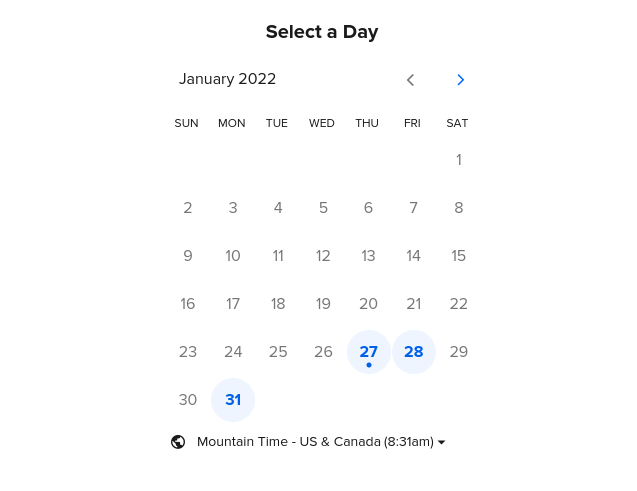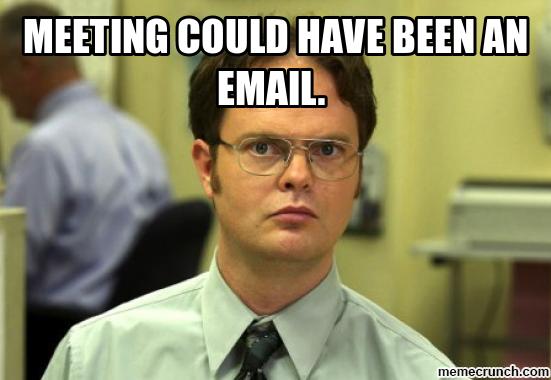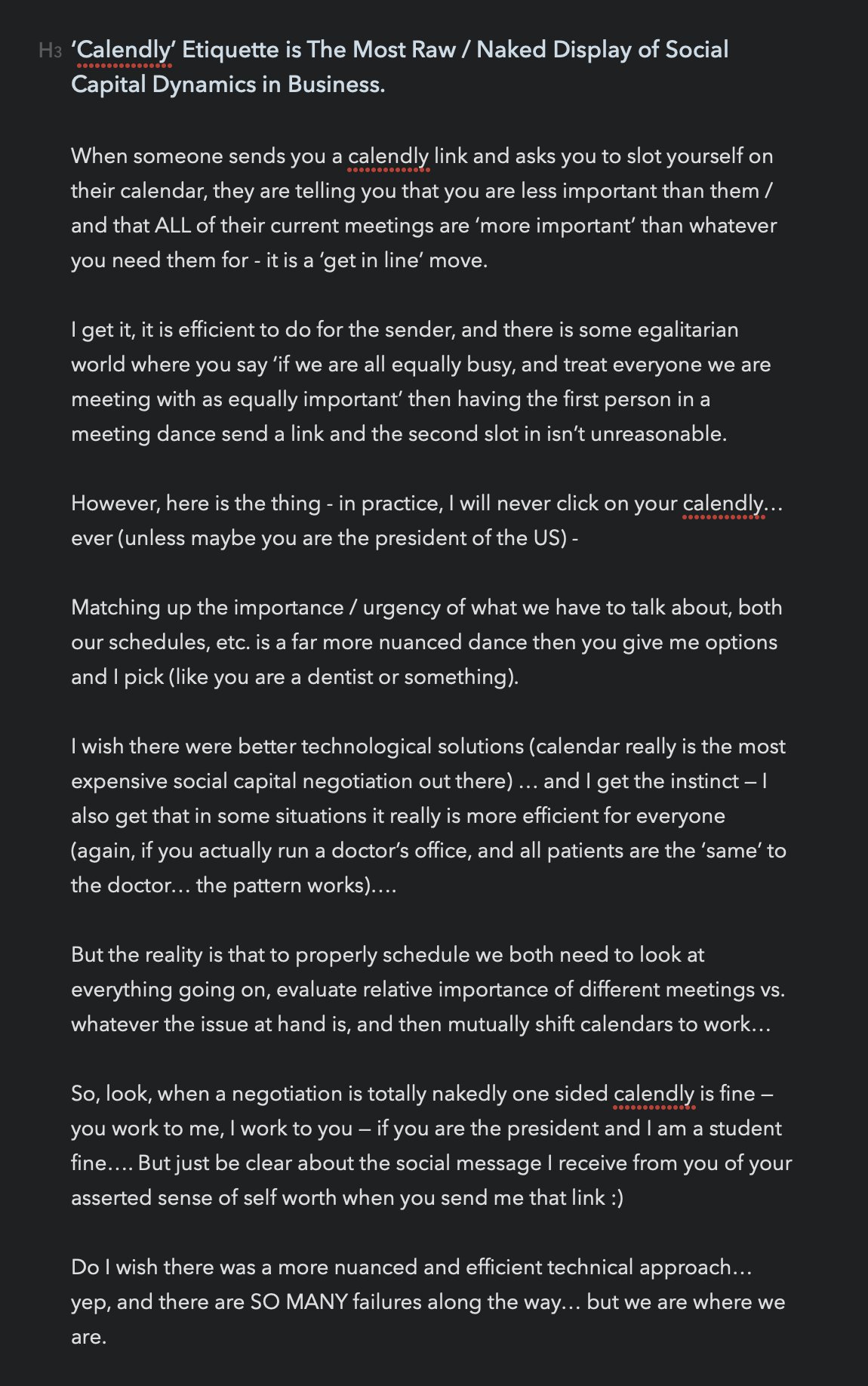The Calendly Problem Isn't Calendly
When someone sends you a Calendly link, it's about them. Contrary to popular belief, not everything is about you.

There is a sentiment going around social media at the moment that I can't keep quiet about. Before we get into the sentiment, a brief history of time (management):
In a world before Calendly, scheduling time with someone was nightmarish...but not for the reasons you think. The struggle was not one of a lack of mutual transparency (ie. "what do both of our calendars look like for the day") and more of one with power dynamics at play (ie. "I MUST meet with you at this time, no exceptions"). Calendar etiquette was non-existent; those sending a request for your time weren't asking themselves important questions like "am I booking something at over your lunch hour?" or "am I including an agenda?" Most meetings probably didn't even need to be meetings.

In the struggle to stay focused, reduce interruptions, and wrest back control of one's schedule, the old way of doing things was awful. It cost them nothing to demand time on your calendar, but it cost you everything.
Calendly, a tool built to allow professionals to quickly & easily allow random strangers on the internet to schedule time to meet with them, produced a wonderful side-effect when used as an internal tool within a company: it shut bad actors down.
With Time Management 101 blocks of reserved time on your personal calendar – no lunches, no 30 minutes at the start or end of the day, a block of time dedicated to work, distraction free – Calendly then presented only what was necessary to the asker: "Here's what's available. Find something that works for you...or don't."
To some, it could be perceived as inconvenient to be presented with someone's boundaries. That doesn't mean you get to violate them.
Which brings me to the sentiment:

So, now that the power dynamic has shifted (and will continue to do so as the emerging worker gains a greater awareness and control of their working conditions), suddenly, Calendly is the problem?
One of the first posts I made on Wrapmate's intranet/wiki was one regarding basic calendar etiquette, in the off-chance bad acting was the result of ignorance than of malevolence.
"Here's how to view someone else's calendar."
"Consider the other person's time zone."
"Do your best not to book across lunch."
"Always include an agenda."
For those of us in charge of teams (especially programmers), setting a precedent of "do not interrupt developers unless it is vital" is not only the right approach, it produces highly productive teams. In the absence of leaders setting that culture in a work environment, Calendly is a wonderful tool that guardrails against bad behavior, regardless of intent.
Is there a better solution? Perhaps one day! But until that day arrives, to make a blanket statement like "I'll never click your Calendly link" says more about you than the failure of technology to address the problem.
Refusing to click someone's Calendly link is the equivalent of saying, "What's this? The person whose time I'm making a request of has a professional approach to time management? They have reduced (or eliminated) wasteful interruptions in order to stay focused and productive? They've put guardrails in place and shifted the onus onto me to find time on their calendar? No, thanks. I'm too important for that."
And in that situation, perhaps Calendly did what it was supposed to do all along.
